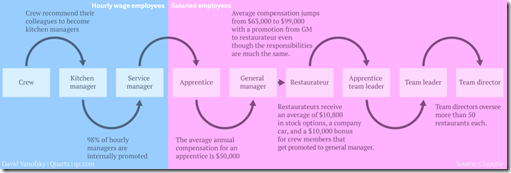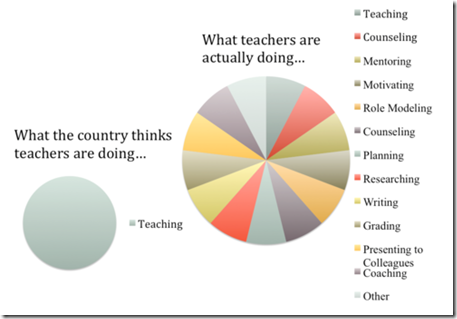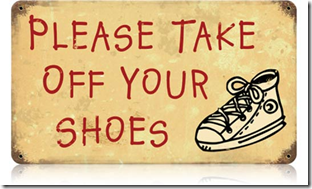I love Slate. I probably read Slate more than anything else on the Internet. But occasionally Slate publishes pieces that amount to nothing more than link bait, and Allison Benedikt’s piece entitled No Thanksgivukkah: The portmanteau holiday is bad for Jews and bad for America, is clearly one of them.

Bad for America? The hyperbole in the subtitle alone is ridiculous, and it’s an argument that she fails to address at any point in the piece.
Not once is her perceived threat to America discussed.
Pure, unadulterated link bait. I should stop right there. This alone should be indictment enough. But I’ll proceed, because I was so annoyed by this piece.
As you may know, Thanksgiving and Hanukkah overlap this year for the first time in 125 years this year. This won’t happen for another 70,000 years, so even the need for making an argument like this is questionable at best.
Get over it, Benedikt. It’s one year.
But the rationale behind Benedikt’s objections are just as ridiculous, probably because link bait is hard to write. If it’s not hyperbolic nonsense, readers won’t click. But hyperbolic nonsense is difficult to pass off as rational.
Benedikt has three objections to Thanksgivukkah. Here they are in the order that she presents them:
I don’t want my kids to think Thanksgiving is a “present holiday.”
And while Thanksgivukkah is a once-in-a-lifetime occurrence, I guarantee that every little Jewish boy and girl who gets a gift on Thursday will, going forward, expect gifts on the fourth Thursday of November—forever.
Ridiculous. Jewish children will receive presents immediately after the lighting of the candles as a part of Hanukkah,, as it has been done every year before. The traditional will remain the same, except that it will be buffered by turkey and stuffing. Unless you wrap the child’s gift in the turkey carcass, it will be crystal clear that these presents have nothing to do with the Pilgrims, cranberry sauce or football.
Even if there are children who are stupid or monstrous enough to expect gifts the following year, they will not receive them, thus ending all future expectations.
As parents, we say no and move on.
And let’s be realistic. This isn’t going happen. Perhaps the most demonic and materialistic children might expect gifts for one additional year, but these monsters are few and far between, and their expectations will only last one year. For children of such ill repute, this kind of disappointment is probably needed and deserved.
I also find it fairly offensive to assume that my children will expect gifts on Thanksgiving next year, which Benedikt does when she “guarantees” that “every little Jewish boy and girl… will expect gifts on the fourth Thursday of November—forever.”
Hyperbole? Probably. But don’t lump my children into your exaggeration. I am confident that many, many little Jewish girls and boys are smart enough to understand the difference between the two holidays, even when they overlap, including my own. Leave my kids out of your link bait. You insult them and all their sensible brethren when you do so.
Sweet and sour braised brisket with cranberry sauce is an abomination.
The argument here is that Jewish food and Thanksgiving Day food does not mix well.
I realize how important food is to the Jewish tradition, but the need to bifurcate these food items lest they be ruined is obviously stupid.
Because my favorite thing about Thanksgiving is that it’s secular.
Allison Benedikt is a Jewish woman married to an atheist man who celebrates the traditions of Christmas. This describes our family as well. My wife is Jewish, and I am a reluctant atheist who loves Santa, Christmas trees and holiday music.
Benedikt struggles with the issues surrounding these religious differences, as did her parents for a time. She expresses as much on a recent podcast, and it’s also hinted at in her piece.
But this sounds like much more of a personal problem for Benedikt than one that impacts a large number of people. It’s really not hard to differentiate between the two holidays, even when they fall on the same day.
It’s really not hard at all.
Besides, in my experience, Hanukkah is celebrated in most Jewish homes for about 15 minutes every night.
Maybe longer if dinner is part of the celebration.
Light some candles, say a prayer, open a gift, and perhaps eat a traditional Jewish meal on one or more of the nights. In fact, I have been told on many occasions (sometimes with great vehemence) that Hanukkah is actually a minor Jewish holiday that has only gained notoriety because of its proximity to Christmas and the desire for retail establishments to capture the Jewish consumer as well.
The overlap between the two holidays is hardly daylong.
Benedikt suspects that she is not alone in her desire for the secular and the religious to remain separate, and I agree. But I also think that she’s in a minority, and it’s a minority that has yet to work through their religious differences with themselves and their spouses. When it’s “a relief it is to have this one major holiday that isn’t in some part about what I am and my husband is not (Jewish), or what he is and I’m not (Christmas-celebrating),” you haven’t exactly embraced the religious diversity in your home.
Instead of worrying about explaining to your kids why mom believes this and dad believes that, why not just embrace a multi-religious view in which all religious views are treated equally, absent any pressure for anyone to conform?
If that seems too radical, remember that this threat to Jews and America will not happen again for another 70,000 years.
Grin and bear it for 24 hours.

























